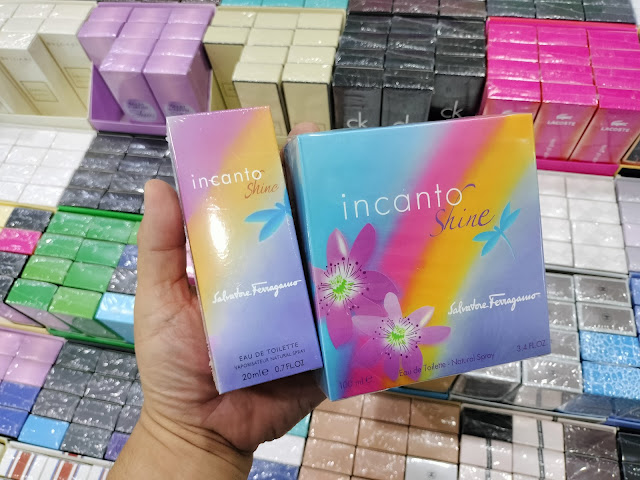Group warns vs perfumes with ‘reprotoxic’ ingredient

- EcoWaste Coalition warns the public against buying fragrance products with a “reprotoxic” ingredient banned by the FDA last year for its harmful effects on the reproductive system.
- When the toxics watchdog went to five wholesale and retail stores in Makati City, Manila and Quezon City last week, it was able to buy 35 assorted products which listed BMHCA as an ingredient, including eau de parfum, eau de toilette, fragrance lotion, fragrance mist and body mist.
- Among the banned products, which cost between P75 and P300, were suspected imitations of popular brands such as Bulgari, Escada, Lacoste, Versace and Victoria’s Secret.
While perfumes may be a popular gift idea for Valentine’s Day, a toxics watchdog on Sunday again warned the public against buying fragrance products with a “reprotoxic” ingredient banned by the Food and Drug Administration (FDA) last year for its harmful effects on the reproductive system.
In a press statement, EcoWaste Coalition said that despite the ban on cosmetic products with a synthetic fragrance ingredient called butylphenyl methylpropional (BMHCA), also known as p-BMHCA, lilial, lily aldehyde, lysmeral or 2-(4-tert-butylbenzyl) propionaldehyde, several continue to be sold in some retail stores in Metro Manila.
EcoWaste said that when it went to five wholesale and retail stores in Makati City, Manila and Quezon City last week, it was able to buy 35 assorted products which listed BMHCA as an ingredient, including eau de parfum, eau de toilette, fragrance lotion, fragrance mist and body mist.
Among the banned products which cost between P75 and P300 were suspected imitations of popular brands such as Bulgari, Escada, Lacoste, Versace and Victoria’s Secret.
“Our investigation shows that cosmetics containing BMHCA can still be found on store shelves despite the ban, and sold to consumers who are unaware of the health risks of being exposed to such an ingredient,” said Aileen Lucero, EcoWaste national coordinator.
“We have duly informed the FDA about our findings and encouraged it to crack down on importers, distributors and sellers of BMHCA-containing cosmetics, noting that law enforcement action can also help in raising consumer awareness about this lesser-known threat to public health,” she added.
Adverse effects
According to Geminn Louis Apostol of the Ateneo School of Medicine and Public Health, BMHCA in cosmetics “can harm the reproductive system, interfere with hormonal functions and trigger allergic reactions.”
“Studies have linked exposure to BMHCA, a ‘reprotoxic’ chemical, to infertility, as well as causing harm to the fetus during pregnancy,” he said.
“Banning BMHCA is indeed a step in the right direction. As there are other synthetic fragrance chemicals of concern, it’s important to require full ingredient disclosure or transparency to inform consumers and reduce potential exposure to harmful substances,” he added.
The United States-based Campaign for Safe Cosmetics has also identified some of these chemicals of concern in fragrances, many of them associated with cancer, birth abnormalities, endocrine disruption and chronic health problems—including acetaldehyde, benzophenone, butylated hydroxyanisole, butylated hydroxytoluene, benzyl salicylate, benzyl benzoate, butoxyethanol, chloromethane, dichloromethane, diethyl phthalate, ethylbenzene, eugenyl methyl ether, formaldehyde, ethanolamines, methanol, oxybenzone, propylparaben, resorcinol, styrene, synthetic musks, titanium dioxide, vinyl acetate, and 1,4-dioxane.
To avoid exposure to toxic chemicals, EcoWaste advised consumers to seek products with FDA authorization, read labels carefully and avoid products that do not contain specific information about their ingredients other than the generic term “fragrance.”
The FDA banned BMHCA under FDA Circular No. 2023-007 which took effect on Nov. 21, 2024, following a grace period of 24 months as decided by the 36th Association of Southeast Asian Cosmetic Committee Meeting held in 2022.





















